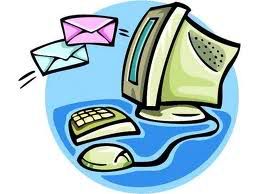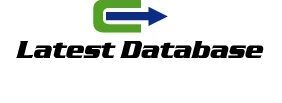 Wouldn't it be great to get ready-made email marketing lists (lists of email addresses you can send your promotional emails to)?
Wouldn't it be great to get ready-made email marketing lists (lists of email addresses you can send your promotional emails to)?
Why wait months to slowly build up your own list of email addresses when you can piggy-back (for a price) on someone else's efforts?
Sadly, there are many problems waiting for you ….
The key issue is how you come to obtain that bulk list of email addresses.
List rental
List rental is almost O.K. — owners of address lists will send an email to their list on your behalf. And they charge you a fee for this service. But you never get to see the email addresses on that list. The list owner does the sending, not you.
With rented email lists — unlike with direct mail — the actual address list never falls into your hands. So you pay a rental fee every time you want to send an email to the list.
Buying a list
The alternative is to buy a physical copy of a list of email addresses. After you pay the purchase price, there are no rental fees to pay. You can send your promotional message as often as you like to the list.
Sounds promising, right?
Wrong.
With very, very few exceptions, purchasing a bulk list like this is death to your business.
Here's a few of the problems and their consequences:
1. List fatigue
Someone who has collected a list of email addresses for their own use has a valuable resource. That's why email marketing works so well: you have a list of people you can dip into regularly to boost sales, build relationships, drive downloads, whatever.
But the value of that list is only preserved if you don't abuse it. Send too much commercial email and people soon stop responding.
So what happens to any list if the owner sells copies to anyone willing to pay the right price?
Nobody is controlling how many emails or even what type of emails people send the list. The addresses get bombarded with messages and response falls.
Clearly, no list owner is ever going to sell copies of their valuable address lists. Not if they want to preserve their value.
So the likely value of a list that is up for sale is …. junk.
2. List quality
Building your own list of people who have asked to get your emails takes patience. It doesn't happen overnight. Although the effort is worth it, many niche list owners will need months and years to build a list of relevant email addresses with more than a few thousand names on it.
And yet there are niche email lists for sale that promise hundreds of thousands or millions of "quality" addresses. No list of that size is likely to be as targeted as the owner claims.
Such a big list is normally only possible by cobbling together addresses from old lists or pulling them off public sources (like websites) with no guarantee that the address is relevant to the name or purpose it's being sold under.
Size matters for those selling: the more addresses you have, the more you can charge. So they're not fussy about quality, nor are they concerned with the legitimacy of the addresses on their lists.
So such lists will commonly have a number of dead, abandoned or non-existent addresses on them. What happens when you send a big chunk of your emails to such addresses?
The receiving systems – ISPs, webmail operators etc. – mark you as a "dirty sender", which leads to blacklisting and the end of your email marketing business.
3. Permission
Successful email marketing is permission marketing. People respond well to emails they asked for. If they didn't ask for them, they might still respond.
Or they might not. Thery might report you as spam, which has numerous practical consequences — all of them bad — for you, your brand and your ability to stay in business on the Internet.
And how many of those addresses gave explicit permission for their details to be sold and resold again and again to anyone with a bit of spare cash? You wouldn't give that permission, so why would anyone else?
Chances are the addresses on that list did not expect to find themselves in your hands. There is no permission.
"Opt-in" lists for sale usually aren't truly opt-in. Any opt-in claimed by the original list owner is likely a lie or an irrelevancy, perhaps with the "permission to sell my address" buried in terms and conditions that nobody read when they submitted their email address.
4. Legal and ISP issues
US spam legislation allows you to send email without first gaining the address owner's permission, provided you satisfy certain requirements concerning what you put in your emails.
That seems to suggest permission isn't so important after all. Wrong.
First, not everybody lives in the US. Anti-spam legislation in just about every other country in the world does require an opt-in before you can send that email. Do you know which country those email addresses you bought come from?
Second, only the courts care about the legal definition of what is and isn't spam. Those managing email (like ISPs) and those receiving it (address owners) have their own set of criteria. If they think you're spamming them, then they can and will block and blacklist you.
It gets worse…
If you still want to drink the kool-aid and believe the list buying dream:
1. Check out the average prices for renting opt-in email lists. It's $100-300 per thousand addresses. That's for a one-off send to addresses you never get hold of yourself.
So explain how anyone can sell a list of any kind of quality for, say, $300 per million addresses? Those incredibly cheap lists are incredibly cheap for a reason.
2. If buying lists was OK, email marketing services would have no problem letting you send to that list using their infrastructure.
They do have a problem though.
From the MailChimp terms of use:
"No purchased lists (no matter how expensive)."
From the Campaign Monitor terms of use:
"purchased lists may not be used"
From the AWeber anti-spam policy:
(On the company's "Things you may not do" list) "Use email lists that you purchased, rented, leased, or in any way bought from a third party"
From the StreamSend terms of use:
"You MAY NOT import members from co-registered or purchased sources"
From the ExactTarget anti-spam policy:
"Our clients certify that they will not use rented or purchased lists…"
Just about every professional email marketing service out there has a similar policy.
So.
If somebody does offer to sell and send you a bulk list of email addresses, 99 times out of 100 you're getting a spam list. That's a list of addresses of people who have not agreed to receive messages like yours, or a list of extremely dubious quality.
At best, your messages to that list just elicit a poor response. At worst, you're labeled a spammer. For you, the game is over.
So when you see offers like 1 million addresses for $100, run as fast as your electronic legs can carry you in the opposite direction….
If you treasured this article and you would like to obtain more info about email marketing list kindly visit our own web page.
